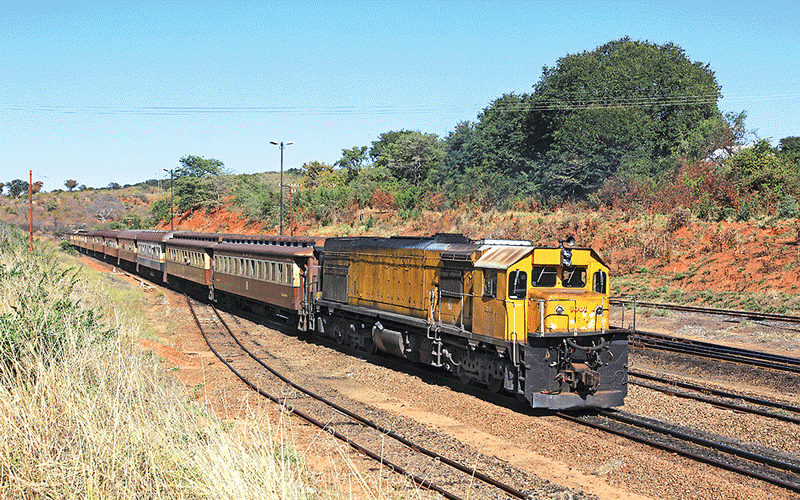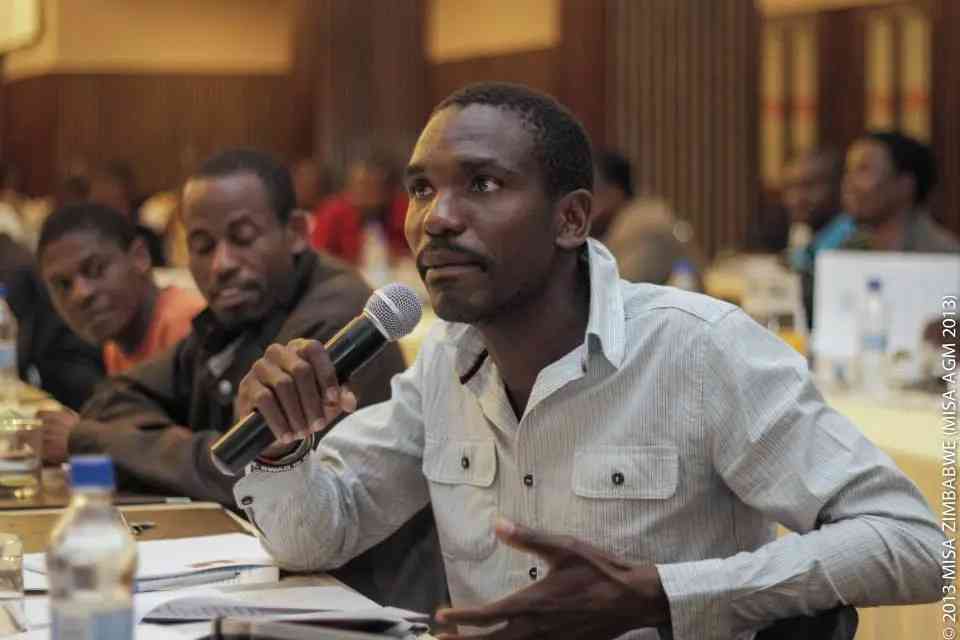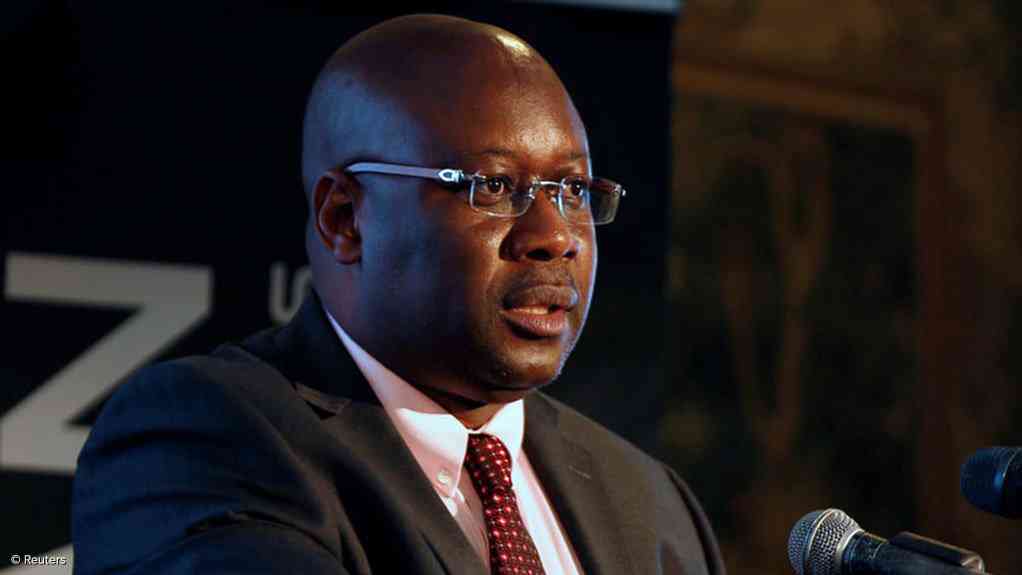
The National Railways of Zimbabwe (NRZ) is embroiled in a bitter property wrangle with a Harare church leader amid accusations that the parastatal has been collecting monthly rentals from his complex for a year without compensating him.
According to court records, the NRZ has been trying to push Nick Chibuzor Ohizu, a church leader of Nigerian origin, from the property on 14432 Seke Road, just outside Harare’s central business district.
The church leader says he spent US$2 million developing the disused land.
Ohizu had been leasing the 6 720 square metre property, where he has constructed a complex consisting of retail shops, office blocks and a church since 2003 until the NRZ booted him out under controversial circumstances.
The parastatal has argued in court that it terminated Ohizu’s lease because of rental arrears amounting to US$ 200 000.
But Ohizu insists he does not owe the NRZ.
It is alleged NRZ ‘cooked up’ the alleged arrears to evict him from the property without compensation.
He says he has lost US$ 100 000 in rentals and over US$ 200 000 in revenue from the business following his eviction.
- NRZ demands stiffer penalties
- Sadc railways commemorate safety week
- Interview: ‘Locomotive tourism’ back in style
- Nigerian hires cops to assault ‘thieving’ workers
Keep Reading
The matter is now before the Supreme Court, which is yet to set a date for a hearing.
Ohizu, through his company, Ojei Ventures and the Redeemed House of God, approached the apex court seeking condonation for late payment of security costs for an appeal against a High Court judgement that sanctioned his eviction.
High Court judge Justice Emmy Tsanga on February 2 ruled in favour of the NRZ, which paved way for Ohizu’s eviction.
In court papers filed last month, Ohizu’s wife, Eunicah, through her lawyers Simango & Associates Legal Practitioners, said the NRZ had been collecting rentals without offering any compensation for the infrastructure.
The NRZ had argued that Ohizu built the structures without authority, a claim denied by the clergyman who insisted the construction of the complex got the nod from the authorities, including the Harare City Council.
“Suffice to state that the lease was signed as alleged, I dispute that the applicants had the authority of the respondent to construct permanent structures on the leased land. I beg leave to attach hereto letters dated 31 May 2012, and 26 March 2013 confirming that the applicants had no permission of the respondent to construct permanent structures,” NRZ eastern region manager Joshua Mhandire said in an opposing affidavit filed on January 11, 2024.
The opposing papers have lease agreements between NRZ and Ohizu’s former tenants, who were ordered to accept the new deal and pay rentals directly to the parastatal on or before January 18, 2024, or risk eviction.
In court papers, Ohizu said the US$200 000 rental arrears emanated from a rental agreement proposal by the NRZ, which did not culminate into an agreement.
He said in June 2020, NRZ personnel audited Ohizu’s accounts and concluded that he owed the parastatal US$12 195. He paid the money, but a month later, the NRZ wrote a letter threatening to cancel his lease, claiming he owed the parastatal ZWL$173 000.
Ohizu was advised by his lawyers to pay the amount without prejudice but was arrested when he went to settle the alleged arrears on charges of trying to bribe the NRZ.
He was, however, subsequently acquitted by the Harare magistrates court despite a spirited effort by NRZ to have him locked.
At that time, the NRZ sent its officers to order his tenants to pay their rentals to the parastatal.
He sued NRZ at the High Court, and it was ordered to follow due process.
In November 2020, the NRZ sent Ohizu another letter claiming that he owed the parastatal money for rentals.
On December 20, 2021, the NRZ wrote another letter notifying him that rentals were being increased from ZW$26000 to US$10 000.
He was ordered to confirm his approval of the new rentals by January 2022.
The new rentals were effective February 1, 2022.
However, the NRZ letter written without prejudice was only delivered to Ohizu’s lawyers on February 1, 2024.
Ohizu’s lawyers wrote back to the NRZ rejecting the “unrealistic rental” increment and the railway company proposed a round table meeting to discuss the issue.
But its officials did not turn up.
He said to prove that the letter now being used by NRZ as the basis for the rental arrears was not binding, several negotiations and rental adjustments were made after it and before his lease was terminated.
“I submit that I have been religiously paying rentals and electricity bills,” Eunicah submitted in her affidavit.
“For ease of reference, I attach hereto a copy of the receipts for 2023 marked as Annexure “D” series. I submit that I do not owe the respondent any cent.
“In addition, I submit that the dispute of arrear rentals started sometime around February 2022 when my former legal practitioners, Honey and Blackenburg received a notice of rental review from respondent’s then legal practitioners Mangwana and associates.”
She added: “The rental review letter dated 20th December 2021 indicated that the respondent was proposing a rental increment from ZW$26 000 to US$10 080 effective 1 February 2022.
“The letter indicated that applicants had until 25th January 2022 to confirm our acceptance of the offer.
“The letter was served on us in February 2022. For easy reference see attached letter marked Annexture “E”.
“My lawyer responded to the letter notifying them that the date had already passed and requested a meeting to further clarify the matters of the proposed rental increment.”
“The respondent’s lawyers set two dates for the meeting and on those two occasions they never showed up for the meeting.”
Eunicah said at that time powerful NRZ senior officials started enquiring whether they had licenses to operate the church, shops, and the rest of the business after they failed to lawfully evict them.
“During all this, I reminded the respondent that when it leased the land in question it was a dump and swampy with very deep holes with no prospects of reasonable use,” she said in the affidavit.
“Now that the property is developed and is beautiful, the business running successfully and worth a lot of money, respondent now wants to fault find and eject me unlawfully in bid to take over the premises.
The NRZ served Ohizu with an eviction notice on September 23 last year and on December 6 its officials stormed the premises and kicked out everyone without a court order before locking the premises.
NRZ spokesperson, Andrew Kunambura said: “Those cases that were struck off were actually appeals to two High Court orders empowering us to control our property which has been used for over a decade without paying rent. We are in control by virtue of two High Court orders. We are not obligated by any general law, lease agreement, or contract to compensate him for anything. We have no compensation clause on the expired lease either. After all, those are illegal structures that he erected there”.











